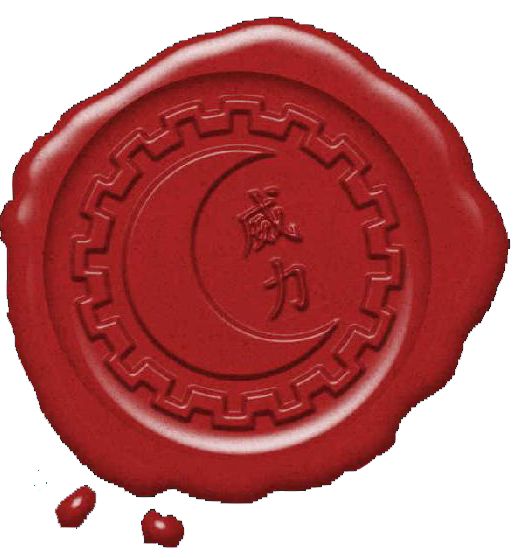Mike
If the world is so large.... does gravity not work the same way in this universe?
Daniel
The planet may be hollow or it may be made of less dense matter or the gravitational constant could be significantly lower in the universe or yeah it could be magic. Though if humans exist it must have some relation to the basic model or they wouldn't be human.
Will Wight
Daniel's right.Part of the answer is "magic," and part of it is how this world developed differently because of magic.
a few moments later....
Two users now argue at length about the subject of the physics of such a large world.... we skip to Will's next comment.
Will Wight
Since it looks like this has become a real discussion, I'll give a real answer!
I made Cradle very big. Why? A few reasons.
First, a lot of wuxia and xianxia stories do it so they can scale up to ridiculous numbers. Where first the character thinks a huge city has ten thousand people, later a huge city has ten BILLION people.
Also, they're so special they're not just one in a million, they're one in a TRILLION! And they go from crossing a thousand miles in a single step to a hundred thousand miles!
So in part, it's an homage to the genre.
In part, it's so that I can set other stories in the same world and they've never even heard of the people, places, or events in Lindon's story.
And inpart it's to illustrate that this isn't Earth. The Iterations are Narnia-style "worlds," not different planets, but since it's a whole new universe each time, they are ALSO different planets.
I wanted a way to show that without putting a second moon in the sky, so "greater surface area and population" it is.
***
As for the mechanics of it: I said "Magic" earlier, but that basically boils down to "This is how vital aura works."
Vital aura is the power of the world that sacred artists harvest and use to strengthen their madra. It's the spirit of the world, basically. It makes what would otherwise be an uninhabitable planet, habitable.
The planet IS less dense than earth, but because of its huge volume, it's more massive. Gravity is much greater. Humans are supported by madra from birth in part because otherwise they wouldn't be able to adapt to the gravity.
You have other problems too: does this less-dense core spin fast enough to create a magnetosphere? Wouldn't continents bigger than Earth's just be massive deserts everywhere except immediately along the coast? Wouldn't the surface of such a planet be wracked by storms?
Vital aura!
I'll get into it later in the books, but for me building this world, aura served a couple of functions. First, it allows people to adapt to what would otherwise be very harsh natural conditions (Sacred Valley and the immediate surrounding areas have, so far, been very mild. Conditions will accelerate as we get deeper into Cradle). Second, vital aura is generated by natural forces AND it changes natural forces.
I'll continue showing how it works in future books, but the bottom line is that aura allows me to have thriving ecosystems where everything is fire-aspect: trees with burning fruit pollinated by insects with wings of flame, and so on and so forth. Same in the depths of the ocean and on the tops of clouds.
It's magic. But it DOES work consistently according to a set of rules, and it DOES interact with physics.
However, I'm not as attached to real-world physics as Brandon Sanderson is. He enjoys figuring out the physical implications of every nuance in his magic systems. I do not enjoy that, so I will not be doing it.
If there's a gap between real physics and magic, I'll be filling in that gap with magic. Not physics. Just a personal preference.
Jeremiah
You may not enjoy figuring out how magic interacts with and is subject to physics, but I would feel sure you wouold enjoy the fact that Sanderson has done so.
Will Wight
Jeremiah, what I like and appreciate is all the thought and planning that Sanderson puts into developing his magic system, and how clear the rules usually are. AND what an impact they always have on the surrounding society.That's cool, and I know from experience that it's very hard to do.But as for him figuring out all the details of how his magic interacts with physics...no, I don't really care.Harry Potter magic doesn't interact with physics, and yet each individual book in the series has a very tight magic system (the series as a WHOLE doesn't, because some magic introduced in a later book could have solved problems in an earlier book, but each book on its own is very consistent).As long as the rules and abilities are clear to me, great! I don't care if they're consistent with known physics or not. Where does the extra mass go when Professor McGonnagall turns into a cat? Magic.
April
I may be weird, but yes, things like that bug me. Less in fantasy as the author can say "because magic" and it works (though some take that to an extreme, which usually is enough to turn me off from a book) but in sci-fi that is a definite deal-breaker)
Will Wight
Apparently that's a pretty common view, April, and that's fine!
I'm just saying that MY tolerance for physics-defying shenanigans is pretty high, as long as it's consistent within the work. If a character survives getting hit by a tactical missile and then is threatened by a knife, Will is not happy.
But if we're getting into the realm of "Dragons could never grow that large because their bones couldn't support their own body weight," or "A conjuration spell could never work because it adds mass to the universe," then I don't care.
It's fantasy. Magic > Physics.
